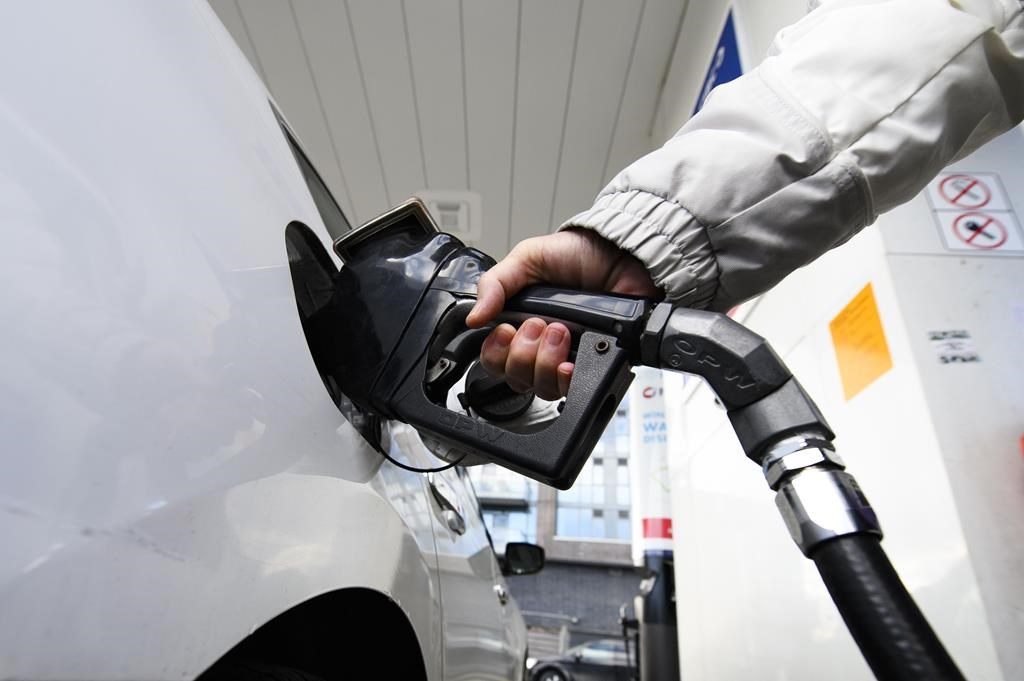The Canadian Taxpayers Federation expressed disappointment at what it deems as a “double blow” of tax hikes in Alberta set to take effect on Monday, stating it will make life more expensive for most residents.
Both the federal carbon tax and the provincial gas tax are set to go up on April 1.
Currently, the carbon pricing plan is $65 per tonne. As of April 1, it will increase to $80 per tonne, and will continue to rise yearly by $15 until it reaches $170 per tonne by 2030. At the gas pumps, the increase on Monday will add about three cents per liter to the cost of gas.
The federal government explained that annual increases form the overall pricing scheme. Carbon tax hikes are planned until at least 2030.
“A province or territory can choose to willingly adopt the federal pricing system,” the government stated on its website.
“If a province or territory chooses not to price carbon pollution or proposes a system that does not meet the minimum national stringency standards, that jurisdiction is subject to the federal pricing system to ensure there is an appropriate price on carbon pollution across Canada.”
The Alberta government also intends to raise its provincial gas tax on April 1 by four cents, bringing the total tax increases to 13 cents per liter. But many Albertans said they felt the impact less than a week before the increase was set to be implemented., with some gas stations in Edmonton raising prices to 151.9 last Tuesday.
“Revenue from the provincial fuel tax supports the programs, services and infrastructure Albertans rely on every day. In 2024-25, fuel tax revenue is projected at $1.4 billion, which will help fund everything from better roads to improved health care and more supports in the classroom to continue to meet the needs of our growing population,” said Alberta Finance Minister Nate Horner earlier this month.
Kris Sims, Alberta director for the Canadian Taxpayers Federation, stated the federal carbon tax will have a “layering effect” in raising costs for Albertans.
“Even if you manage to have a downtown urban setting sort of a life where you only ride your bike, or you only walk to farmers markets, you are still hit hard by the carbon tax. And that is because the carbon tax applies to diesel at 21 cents extra per liter for diesel. That means the cost of pretty much everything we eat and use goes up because pretty much everything we eat and use is delivered to us on a truck,” Sims told Global News on Sunday.
“So all those trucks you see on the highways, all those goods that you see in the stores, those things are essential parts of our economy. And so every time you purchase something, whether it be food or supplies, chances are it’s been impacted by the carbon tax multiple times.”
It’s not just grocery bills that will rise for Albertans, according to Sims. Heating homes for the winter will also be more expensive this year, she said.
“So just for home heating, natural gas use on average here in Alberta, based on this carbon tax, is going to cost (Albertans) more than $400 this year for home heating. So that’s a lot of money,” she said.
Sims mentioned that although the tax increases were not unexpected, they are poorly timed due to cost of living issues in the province. She stated that the average Albertan will lose about $900 this year.
A report released by Food Banks Canada in September 2023 indicates that 49.4% of the surveyed individuals feel financially worse off compared to 2022. The report also notes that the number of people reporting low incomes and difficulties finding work in their community is six percentage points higher than the national average.
The report also indicates a 73% increase in the use of food banks between 2019 and 2022.
“People are financially strained and unable to afford this; they are exhausted,” Sims stated. “This is also reflected in polls, where about 70% of Canadians want this carbon tax to be either stopped or removed.”
–With reports from Aaron D’Andrea, Emily Mertz, and Jennifer Ivanov, Global News.



